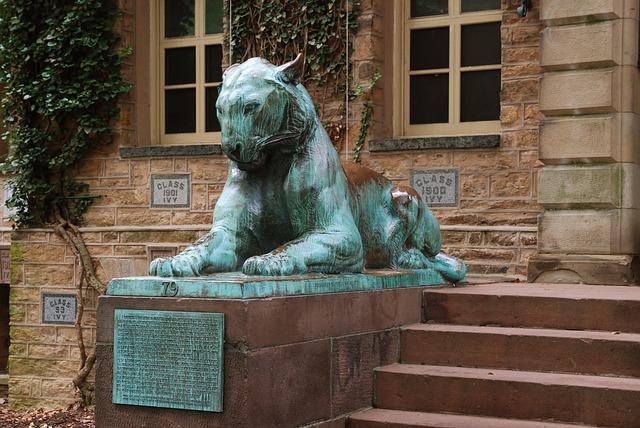France’s higher education system has long been recognized for its blend of tradition and innovation, attracting thousands of international students each year. From prestigious Grandes Écoles to public universities, the landscape offers diverse pathways for academic and professional advancement. Managed and promoted by Campus France, the country’s official agency for international student recruitment and support, the system combines rigorous academic standards with extensive cultural and social opportunities. This article explores how higher education works in France, detailing its structure, key institutions, and the role Campus France plays in guiding students through their educational journey in one of Europe’s most vibrant study destinations.
Understanding the Structure of Higher Education Institutions in France
France’s higher education system is characterized by a dual structure, combining universities and grandes Ă©coles, each offering distinct paths tailored to diverse academic and professional ambitions. Universities provide broad-spectrum academic degrees with a strong emphasis on research and theory, while grandes Ă©coles are highly selective institutions focused on specialized fields such as engineering, business, and public administration. This two-tier framework ensures a balance between accessible education and elite training, maintaining France’s reputation for educational excellence.
Within these institutions, the organization is further refined into various disciplines and cycles. The university system follows the Bachelor-Master-Doctorate (BMD) structure, aligning with the European Higher Education Area (EHEA). Grandes Ă©coles, on the other hand, often use competitive entrance exams and offer intensive, professionally oriented courses that culminate in diplomas equivalent to master’s degrees. Key features of this framework include:
- Public Universities: Wide range of undergraduate and postgraduate programs, open to all students obtaining the baccalauréat.
- Grandes Écoles: Admission through competitive exams, prestige linked to specialized expertise and strong industry connections.
- Technical Institutes and Specialized Schools: Focus on applied sciences, arts, and specific professional domains.
| Institution Type | Admission | Degree Offered | Duration |
|---|---|---|---|
| Public University | Open to baccalaurĂ©at holders | Bachelor’s, Master’s, Doctorate | 3-8 years |
| Grandes Écoles | Competitive exams | Master’s equivalent diploma | 2-5 years |
| Technical Institutes | Baccalauréat or equivalent | Applied degrees and certifications | 2-3 years |
Navigating Admission Processes and Entrance Requirements for International Students
International students aiming to study in France must carefully navigate a multi-step admission process that varies depending on the level of study and institution. Most French universities and grandes Ă©coles require candidates to submit a detailed application, which typically includes academic transcripts, letters of recommendation, and a motivated personal statement. Additionally, many programs necessitate proficiency in French or English, verified through standardized language tests such as DELF/DALF or TOEFL/IELTS. The centralized platform Campus France often serves as the initial gateway, streamlining applications and providing guidance on required documents, deadlines, and visa procedures. Deadlines can be strict, so early preparation is essential for smooth progress.
Entrance requirements differ widely based on the program and institution type. Public universities generally have more accessible criteria, focusing on academic qualifications equivalent to the French baccalauréat, whereas the grandes écoles demand competitive exams or interviews in addition to strong academic records. To simplify understanding, here is an overview of common admission components for international applicants:
- Academic Records: Translated and certified transcripts from prior schooling.
- Language Proficiency: Proof of French or English skills according to program language.
- Entrance Exams: Specific to grandes Ă©coles and some specialized programs.
- Motivation Letter: Personal statement explaining reasons for applying and career goals.
- Visa Application: Requires proof of acceptance and financial resources.
| Institution Type | Admission Focus | Typical Entrance Requirement |
|---|---|---|
| Public University | Academic Qualifications | High school diploma or equivalent |
| Grandes Écoles | Competitive Exams & Interviews | Written & oral entrance exams |
| Technical Institutes | Practical Skills & Academic Records | Portfolio and transcripts |
Maximizing Opportunities Through Scholarships and Campus France Support Services
France offers a wealth of scholarships designed to make higher education accessible to international students. These financial aids range from merit-based awards to need-based grants, each opening doors to prestigious institutions across the country. Beneficiaries can also enjoy reduced tuition fees and additional allowances, helping to ease the cost of living and study expenses. Campus France plays a critical role in streamlining access to these scholarships by providing comprehensive guidance throughout the application process, ensuring students find the best fit for their academic and financial profiles.
Beyond scholarships, Campus France’s support services extend to personalized counseling, visa assistance, and pre-departure briefings, all tailored to maximize a student’s success abroad. Through a network of dedicated advisors and digital platforms, students gain up-to-date information on scholarship deadlines, eligibility criteria, and documentation requirements. This holistic approach equips prospective scholars with the tools needed to navigate challenges and optimize their educational journey in France.
Closing Remarks
In conclusion, France’s higher education system presents a distinctive blend of tradition and innovation, offering a diverse range of opportunities for both domestic and international students. Through the support of organizations like Campus France, navigating admissions, scholarships, and academic culture becomes more accessible than ever. As the country continues to attract a growing number of students worldwide, understanding how higher education operates in France remains essential for anyone considering it as a destination for their studies.




